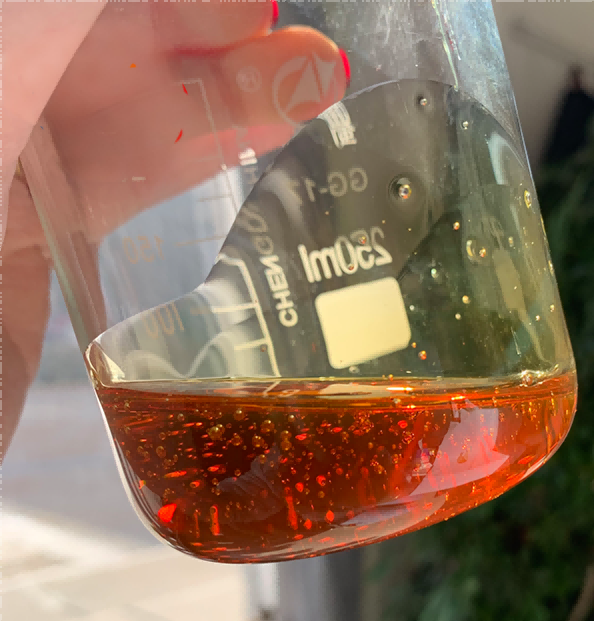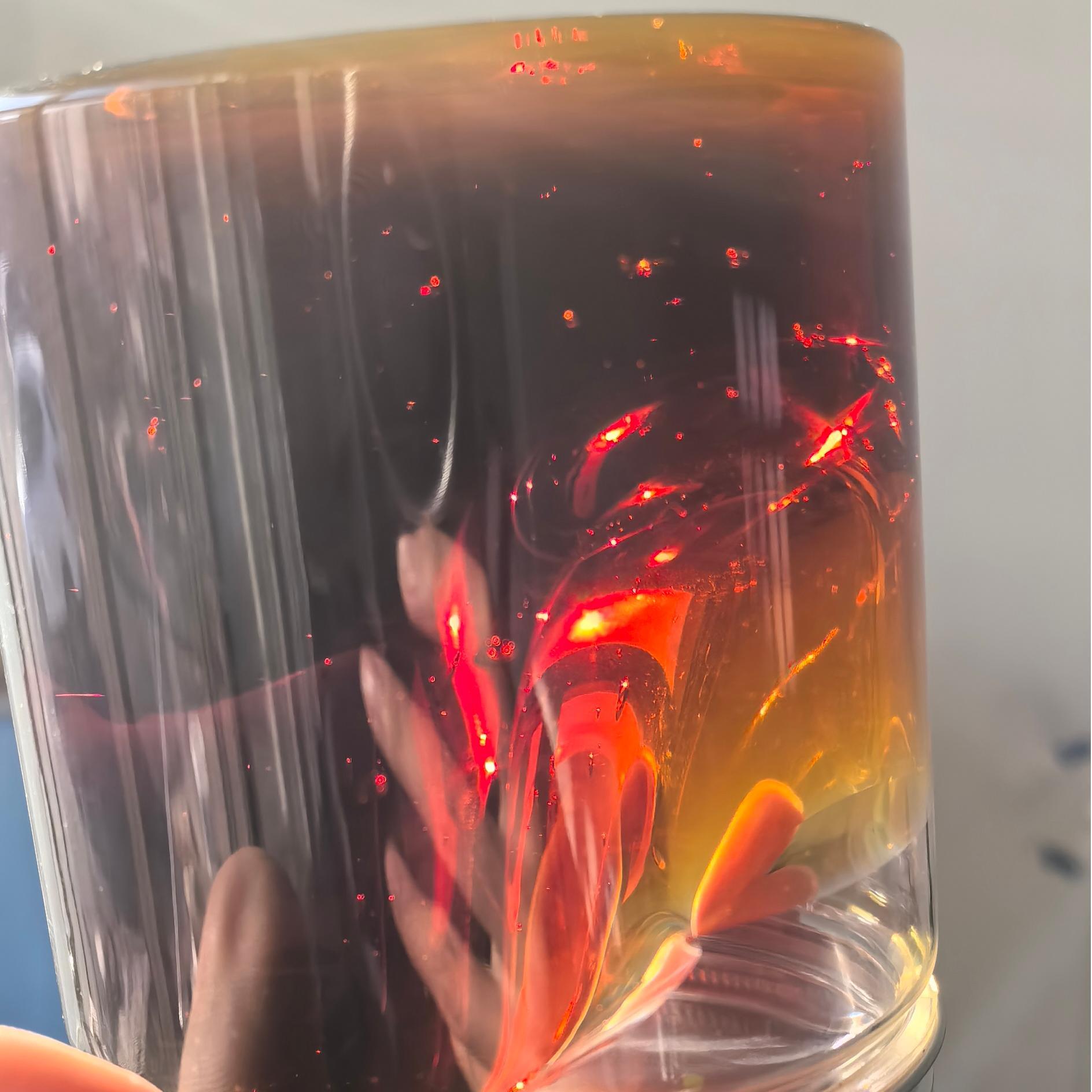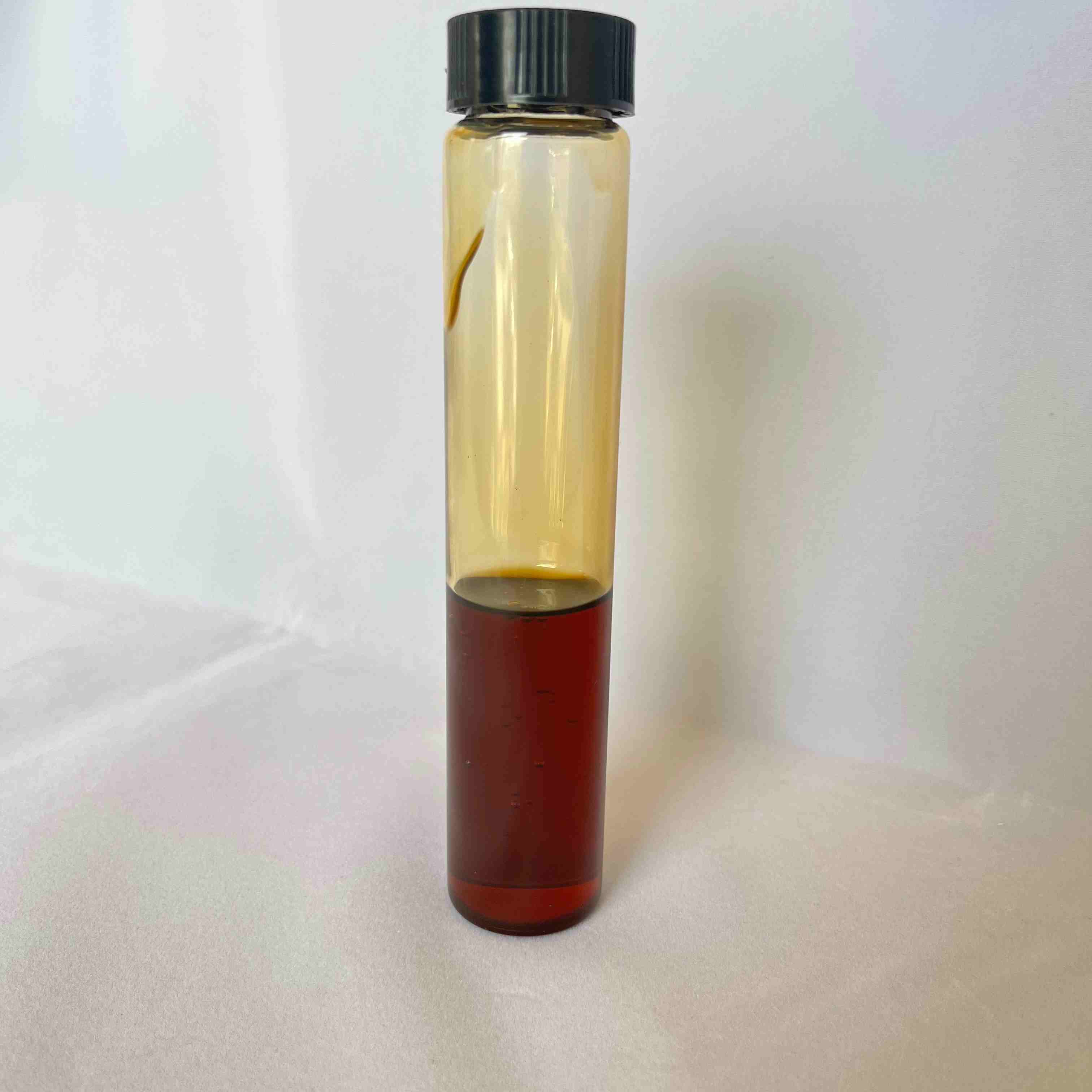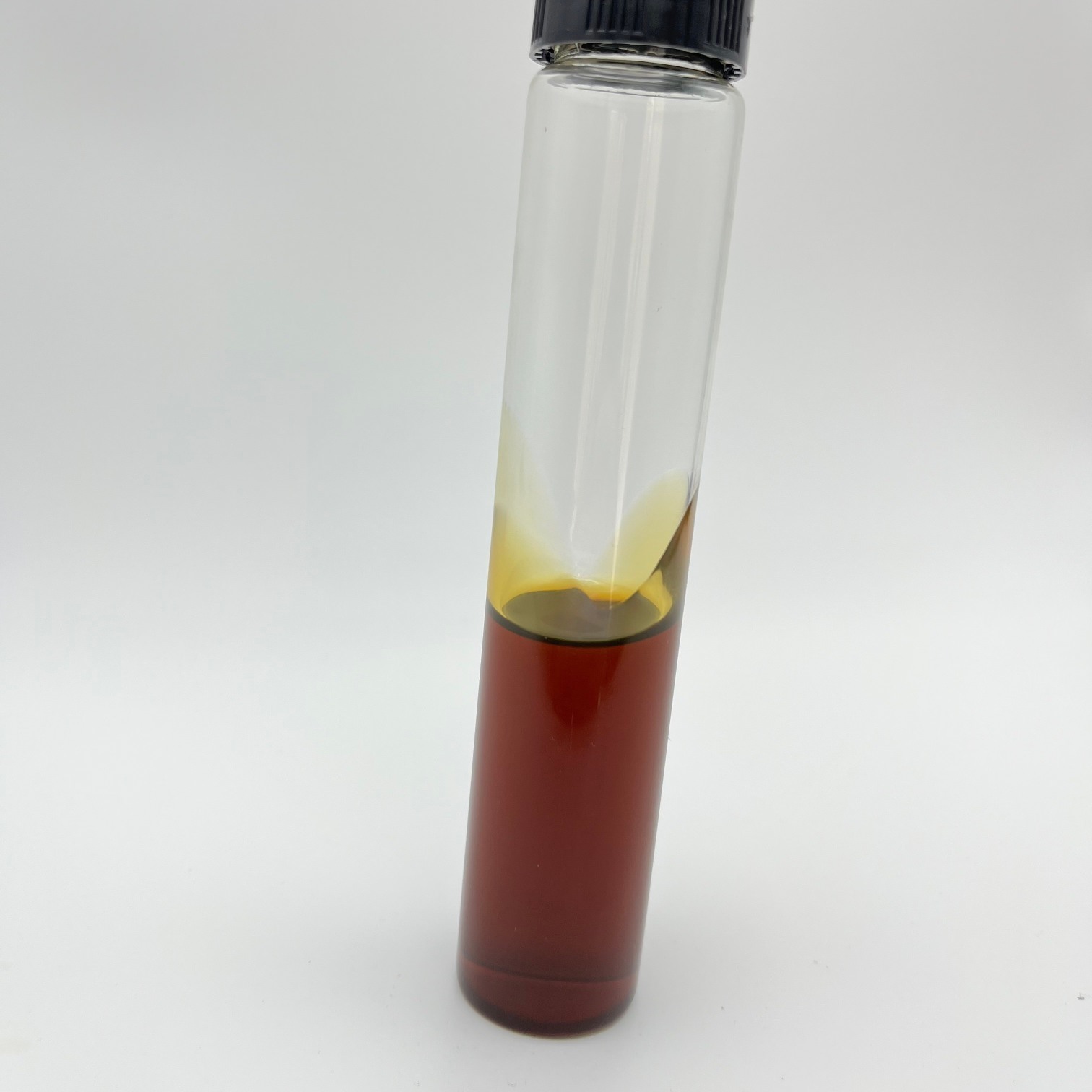What are dispersants in engine oil?
Time:
2025-08-19
What Are Dispersants in Engine Oil?
Introduction to Engine Oil Dispersants
Engine oil is more than just a lubricant; it’s a carefully designed blend of base oils and additives that keep engines clean and running smoothly. Among these additives, dispersants play a vital role. They are known as engine oil dispersants, and their main function is to prevent sludge, soot, and deposits from sticking to metal surfaces inside the engine.
When fuel burns inside an engine, it produces tiny carbon particles, moisture, and by-products. Without proper additives, these particles clump together and form sludge. That’s where dispersant additives step in. They hold contaminants in suspension, preventing them from settling and allowing the oil filter to remove them more effectively.
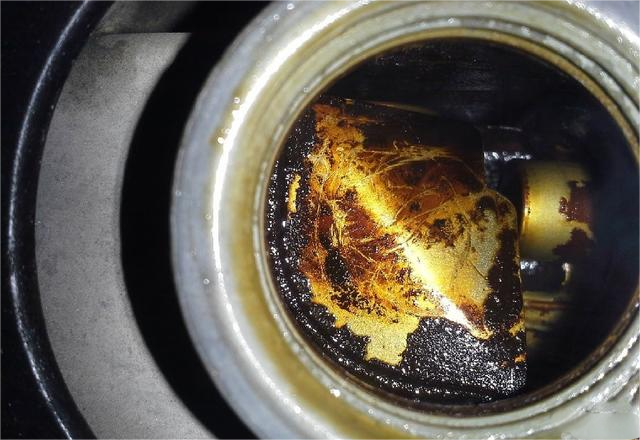
Why engine oil needs dispersants
They reduce sludge and varnish formation.
They help oil last longer by maintaining cleanliness.
They improve performance in both gasoline and diesel engines.
How dispersants protect engines
By surrounding and isolating tiny contaminants, dispersants stop them from sticking together. This keeps engine oil stable, prevents blockages, and ensures smooth lubrication across all moving parts.
Understanding Polyisobutylene Succinimide (PIBSI)
What is PIBSI dispersant?
The most common type of dispersant is polyisobutylene succinimide (PIBSI). It’s a nitrogen-containing compound derived from polyisobutylene (a synthetic polymer) and succinic anhydride. PIBSI dispersant is valued because it works effectively in both ashless dispersant oil formulations and in combination with other lubricant additives dispersant systems.
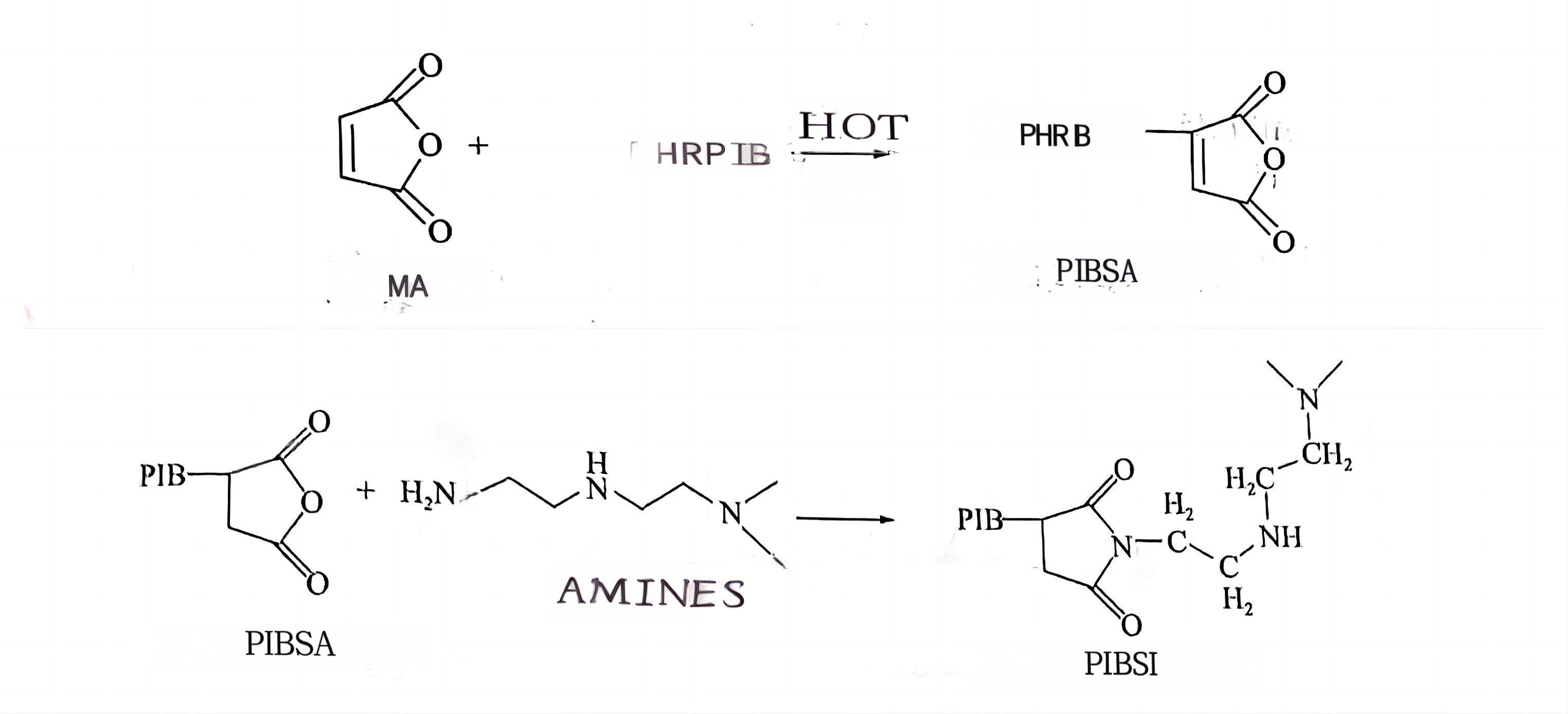
PIBSI and ashless dispersants explained
An ashless dispersant means that the molecule does not contain metals like calcium or magnesium. This is important because metal-containing dispersants can leave behind ash when burned, which contributes to deposits in the combustion chamber. Ashless dispersants PIBSI avoid this problem, making them ideal for modern high-performance engines.
Why polyisobutylene succinimide is widely used
Strong ability to keep soot particles suspended.
Excellent compatibility with other oil additives.
Proven effectiveness in both gasoline and diesel engines.
Commonly available from manufacturers in China, often under the trade name T154.
Types of Engine Oil Dispersants
Ashless dispersant oil
This type of dispersant does not contain metals, meaning no ash is left behind when burned. It’s the preferred choice in modern lubricant additives dispersant formulations.
Metal-containing dispersants vs. ashless dispersants PIBSI
Metal-containing dispersants: Effective but can leave ash deposits.
Ashless dispersants PIBSI: Cleaner option with fewer deposit concerns.
Comparison of dispersant additives
| Type | Pros | Cons |
|---|---|---|
| PIBSI dispersant | Excellent soot control, ashless | More expensive |
| Metal-containing dispersants | Cheaper, good deposit control | Ash formation |
| Hybrid systems | Balanced performance | Complex formulation |
How Dispersant Additives Work in Engine Oil
Chemical action of polyisobutylene succinimide
PIBSI molecules have a dual nature: one end attaches to contaminants, while the other remains oil-soluble. This unique design allows them to surround particles and keep them dispersed.
Interaction with soot and deposits
Without dispersants, soot particles stick together and form sludge. PIBSI dispersants keep them suspended, preventing buildup on pistons, valves, and bearings.
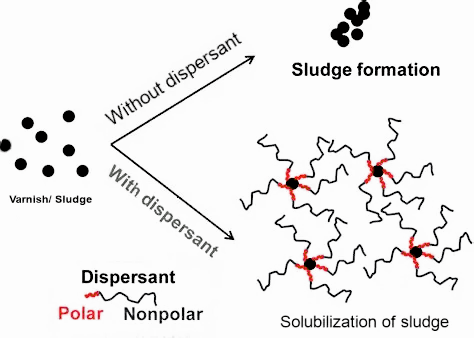
Benefits of Using PIBSI Dispersant in Engine Oils
Cleaner engines and longer oil life
Dispersants like PIBSI extend oil drain intervals by preventing premature thickening caused by soot.
Reduced sludge and varnish
Engines with PIBSI dispersant stay cleaner inside, reducing wear and improving efficiency.
Compatibility with other lubricant additives dispersant systems
PIBSI works well with detergents, anti-wear agents, and antioxidants, making it a cornerstone of lubricant additives packages.
The Role of Dispersants in Modern Lubricant Additives
How dispersants work alongside detergents
Detergents neutralize acids, while dispersants handle soot. Together, they ensure oil stays both clean and stable.
Balance between dispersant and detergent levels
Too much dispersant can increase oil viscosity, while too little leads to sludge. Manufacturers carefully balance these additives for optimal results.
Applications of Polyisobutylene Succinimide
Passenger car engine oils
PIBSI dispersants are used in everyday car oils to keep engines free from deposits.
Heavy-duty diesel engine oils
Diesel engines produce more soot, making dispersants even more critical. PIBSI is a top choice here.
Industrial lubricant additives
Apart from engines, PIBSI dispersant is also used in industrial lubricants that face high soot contamination.
Popular Dispersant Additive: T154 polyisobutylene succinimide
What is T154 polyisobutylene succinimide?
T154 is a trade name for polyisobutylene succinimide dispersant, commonly produced by manufacturers in China. It’s widely used in both gasoline and diesel engine oils.
Why T154 polyisobutylene succinimide is commonly used in China
China is a major supplier of lubricant additives, and T154 is one of the most exported dispersants. Its popularity comes from reliability, cost-effectiveness, and proven performance.
T154 polyisobutylene succinimide vs. other PIBSI dispersant options
Compared to other PIBSI types, T154 is versatile and often chosen for standard engine oils due to its availability and consistent quality.
How Manufacturers Produce PIBSI Dispersants
Typical production process
PIBSI dispersant is produced by reacting polyisobutylene with succinic anhydride, followed by reaction with a polyamine. The result is a stable ashless dispersant.
Role of manufacturers in China
Many manufacturers in China specialize in producing T154 and other PIBSI dispersants, making the country a key global supplier.
Quality standards for dispersant additives
Producers follow strict specifications to ensure dispersants meet engine oil performance requirements.
Limitations of Engine Oil Dispersants
Why dispersants alone are not enough
While effective, dispersants cannot replace other additives. They must be used in combination with detergents(also call tbn booster), antioxidants, and anti-wear agents.
The need for balanced oil additive packages
A balanced additive system ensures long-lasting engine protection.
Frequently Asked Questions (FAQs)
1. What are dispersants in engine oil?
Dispersants are additives that keep soot, sludge, and contaminants suspended in oil, preventing deposits in the engine.
2. What is polyisobutylene succinimide (PIBSI)?
PIBSI is an ashless dispersant widely used in engine oils to control soot and sludge.
3. What is T154 in engine oils?
T154 is a common PIBSI dispersant produced by manufacturers in China, used globally in lubricant formulations.
4. Why are ashless dispersants important?
Ashless dispersants like PIBSI do not leave metallic ash deposits, making them ideal for clean engines.
5. Can dispersants replace detergents in oil?
No. Dispersants and detergents serve different roles and must work together for full protection.
6. How do I know if an oil contains PIBSI dispersant?
Check the oil’s technical datasheet or ask the manufacturer; many will specify PIBSI-based dispersants like T154.
Ending
Engine oil dispersants are essential additives that keep engines clean, efficient, and reliable. Among them, polyisobutylene succinimide (PIBSI) stands out as the most widely used ashless dispersant oil. Known for its effectiveness in preventing sludge, soot, and deposits, PIBSI is found in both passenger car oils and heavy-duty diesel lubricants.
Products like T154, produced by leading manufacturers in China, highlight the importance of PIBSI in today’s lubricant market. While dispersants alone cannot protect an engine, they are a critical part of every balanced oil additive package.
By choosing oils with proven lubricant additives dispersant systems, drivers and industries ensure cleaner engines, longer oil life, and reliable performance.
Previous page
Next page
Previous page
Next page
PRODUCTS CENTER
MORE BLOG
2025-08-19
2025-08-18
2025-08-17
2025-08-15
2025-08-11
CheMost
CheMost Additives CO.,LTD
ADDRESS: CheMost Additives CO.,LTD, Jinzhou city, Liaoning provice, China
To learn more about CheMost, please click the button to contact us anytime.
Get product catalogCopyright© 2025 CheMost Additives CO.,LTD
Website:300.cn jinzhou.300.cn | SEO | Privacy Policy


